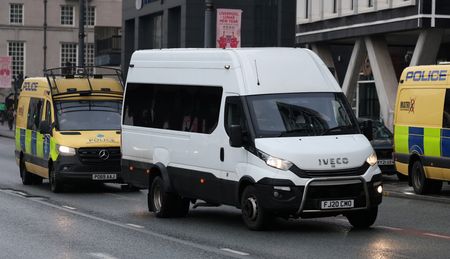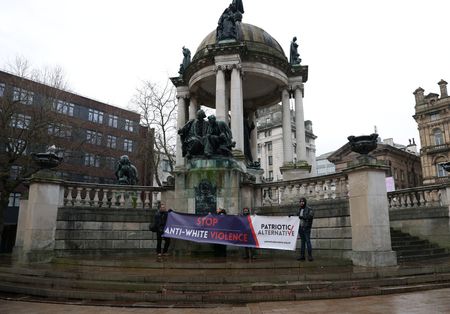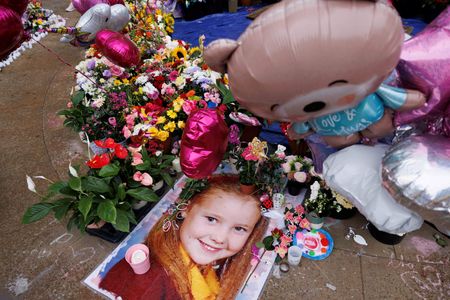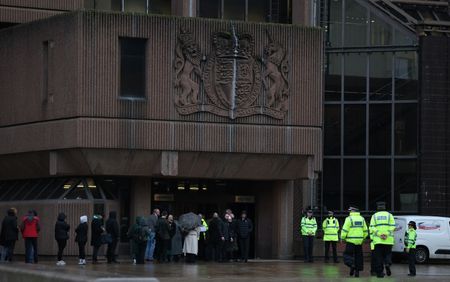By Michael Holden and Sam Tobin
LONDON/LIVERPOOL, England (Reuters) -A British teenager unexpectedly pleaded guilty on Monday to murdering three young girls at a Taylor Swift-themed dance event last July, while the government said it would hold an inquiry into the atrocity which was followed by nationwide rioting.
Axel Rudakubana, 18, surprised the judge, prosecutors and police by admitting he had carried out the killings in the northern English town of Southport, making the trial that was about to start at Liverpool Crown Court unnecessary.
He also pleaded guilty to 10 charges of attempted murder relating to the attack, as well as to producing the deadly poison ricin and possessing an al Qaeda training manual.
Hours later, the government announced there would be a public inquiry, with Prime Minister Keir Starmer saying it was “a moment of trauma for the nation when there are grave questions to answer as to how the state failed in its ultimate duty to protect these young girls”.
Rudakubana had previously been referred to Prevent, a counter-radicalisation scheme, three times, but no action had been taken and he had also been in contact with the police, the courts, and mental health services, the government said.
“It is clear that this was a young man with a sickening and sustained interest in death and violence,” said Ursula Doyle from the Crown Prosecution Service. “He has shown no signs of remorse.”
Rudakubana, who was 17 at the time of the incident, initially refused to speak when asked to confirm his name, as he had at all previous hearings, which meant that “not guilty” pleas had been entered on his behalf in December.
But after consulting with his lawyer, he admitted murdering Bebe King, 6, Elsie Dot Stancombe, 7, and Alice Dasilva Aguiar, 9, who were at the summer vacation event.
Doyle said he had carried out a “meticulously planned rampage” as innocent children enjoyed a carefree dance workshop and made friendship bracelets.
Judge Julian Goose said he would sentence Rudakubana on Thursday and that a life sentence was inevitable.
ANTI-IMMIGRANT RIOTS SPARKED ACROSS BRITAIN
Rudakubana, who was born in Britain, was arrested shortly after the attack in the quiet seaside town north of Liverpool. Despite finding the al Qaeda manual, police had said the incident was not being treated as terrorism-related, and his motive remains unknown.
In the wake of the murders, large disturbances broke out in Southport after false reports spread on social media that the suspect was a radical Islamist migrant.
The unrest spread across Britain with attacks on mosques and hotels housing asylum seekers. Starmer blamed far-right thuggery and more than 1,500 people were arrested.
The Guardian newspaper reported that Rudakubana, the son of devout Christians who had moved to Britain from Rwanda, had been referred to Prevent over concerns that he was looking at online material about U.S. school massacres and past terrorist attacks. But he was not judged to be a terrorism risk, the paper said.
The interior minister Yvette Cooper said an inquiry was needed so families of the victims “can get answers about how this terrible attack could take place and about why this happened to their children”.
(Additional reporting by Elizabeth Piper and Andrew MacAskill; Editing by Kate Holton, Alex Richardson and Nia Williams)











